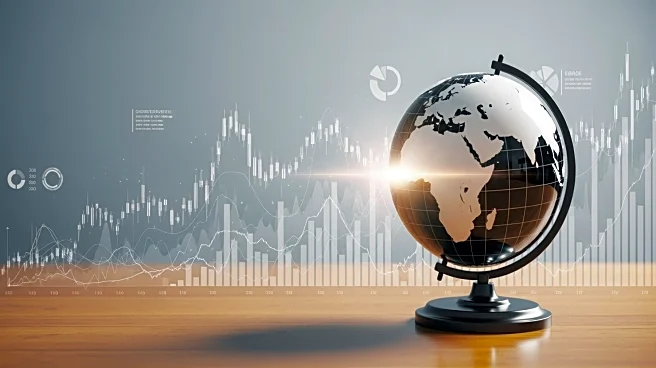What's Happening?
President Trump is set to visit Tokyo, marking his first trip to Japan during his second presidential term. The visit comes as he aims to discuss the U.S.-Japan trade agreement with Japan's newly elected
Prime Minister, Sanae Takaichi. Historically, Japan was a major focus for Trump, particularly during the 1980s when Japan's economy was booming. Trump's approach to trade, characterized by tariffs, was influenced by his perception of Japan as a significant economic competitor. However, Japan's economic landscape has changed dramatically since then, with the country now facing challenges such as an aging population, worker shortages, and a lagging automobile industry. Despite these changes, Trump's trade policies remain rooted in past perceptions, focusing on tariffs to address trade imbalances.
Why It's Important?
The visit underscores the ongoing impact of Trump's trade policies on international relations and economic strategies. Japan's current economic challenges, including a shrinking population and a weak currency, contrast sharply with the booming economy of the 1980s that initially caught Trump's attention. The U.S.-Japan trade agreement, which includes significant tariffs and investment promises, reflects Trump's continued focus on protecting U.S. economic interests. This approach has implications for global trade dynamics, particularly as Japan seeks to revitalize its economy amidst these challenges. The meeting between Trump and Takaichi could influence future trade negotiations and economic policies between the two nations.
What's Next?
As Trump and Takaichi discuss the trade agreement, potential adjustments to tariffs and investment commitments may be considered. The outcome of these discussions could impact Japan's economic strategy and its relationship with the United States. Additionally, Trump's visit may prompt reactions from other global economic players, particularly those affected by U.S. trade policies. The meeting with Japan's emperor, a symbolic gesture, may also influence diplomatic relations. Observers will be watching for any shifts in Trump's approach to Japan and how these might affect broader international trade policies.
Beyond the Headlines
Trump's perception of Japan as an economic rival highlights broader themes of economic nationalism and protectionism. The historical context of Japan's economic rise and subsequent stagnation offers insights into the challenges of maintaining economic growth and stability. The cultural and social changes in Japan, such as increased foreign worker presence, reflect broader global trends in labor and immigration. Trump's visit may also serve as a reminder of the complexities of international trade relations and the need for adaptive policies in response to changing economic realities.











